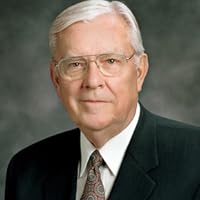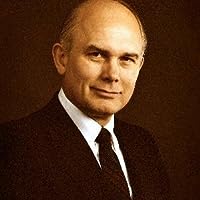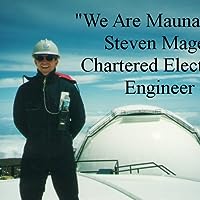Pioneer Quotes
Quotes tagged as "pioneer"
Showing 1-30 of 58

“The person who follows the crowd will usually go no further than the crowd. The person who walks alone is likely to find himself in places no one has ever seen before.”
―
―
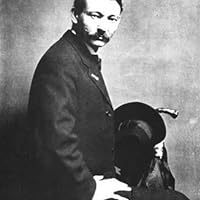
“Do whatever you do intensely. The artist is the man who leaves the crowd and goes pioneering. With him there is an idea which is his life.”
― The Art Spirit
― The Art Spirit
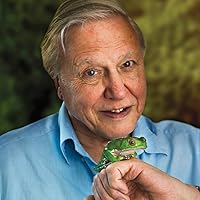
“We only know a tiny proportion about the complexity of the natural world. Wherever you look, there are still things we don’t know about and don’t understand. [...] There are always new things to find out if you go looking for them.”
―
―
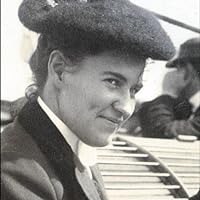
“He had seen the end of an era, the sunset of the pioneer. He had come upon it when already its glory was nearly spent. So in the buffalo times a traveller used to come upon the embers of a hunter's fire on the prairie, after the hunter was up and gone; the coals would be trampled out, but the ground was warm, and the flattened grass where he had slept and where his pony had grazed, told the story.
This was the very end of the road-making West; the men who had put plains and mountains under the iron harness were old; some were poor, and even the successful ones were hunting for a rest and a brief reprieve from death. It was already gone, that age; nothing could ever bring it back. The taste and smell and song of it, the visions those men had seen in the air and followed, - these he had caught in a kind of afterglow in their own faces, - and this would always be his.”
― A Lost Lady
This was the very end of the road-making West; the men who had put plains and mountains under the iron harness were old; some were poor, and even the successful ones were hunting for a rest and a brief reprieve from death. It was already gone, that age; nothing could ever bring it back. The taste and smell and song of it, the visions those men had seen in the air and followed, - these he had caught in a kind of afterglow in their own faces, - and this would always be his.”
― A Lost Lady

“The visionary is destined to walk in solitude.
If the vision is truly original;
If the vision is truly unprecedented;
Then by its very nature, only the visionary is privy to its wonders.
It is the burden of a single soul.
Alone.
For even the visionary must peel back, chisel and ax away at the status quo to eventually reveal for all humanity what is yet unseen and unheard of.
The visionary is the sculptor releasing the vision from the block of stone that is convention.”
―
If the vision is truly original;
If the vision is truly unprecedented;
Then by its very nature, only the visionary is privy to its wonders.
It is the burden of a single soul.
Alone.
For even the visionary must peel back, chisel and ax away at the status quo to eventually reveal for all humanity what is yet unseen and unheard of.
The visionary is the sculptor releasing the vision from the block of stone that is convention.”
―
“We were going home. The mountains might seem hostile to some people, but they were a shelter and a blessing for me. I lived in their shadows. As they have strength to my ancestors long ago, they gave strength to me now.”
― Dorie: Woman of the Mountains
― Dorie: Woman of the Mountains

“She is a warrior capable of slaying the demons in life. She is a pioneer capable of choosing her own path. She is a trailblazer capable of achieving new horizons. Just give her some time and see her bedazzle the world.”
―
―

“No Love Without Tears (The Sonnet)
There is no love without tears.
There is no diversity without difference.
There is no revolution without smears.
There's no justice without inconvenience.
There is no development without flaws.
There is no dignity without disrespect.
There is no learning without falling.
There is no heart without heartbreak.
There is no path without the thorns.
There is no pedestrian without weariness.
There is no dream without the hardship.
There's no determination without doubtfulness.
Only those who have felt excruciating pain,
Can help others without expecting any gain.”
― Mücadele Muhabbet: Gospel of An Unarmed Soldier
There is no love without tears.
There is no diversity without difference.
There is no revolution without smears.
There's no justice without inconvenience.
There is no development without flaws.
There is no dignity without disrespect.
There is no learning without falling.
There is no heart without heartbreak.
There is no path without the thorns.
There is no pedestrian without weariness.
There is no dream without the hardship.
There's no determination without doubtfulness.
Only those who have felt excruciating pain,
Can help others without expecting any gain.”
― Mücadele Muhabbet: Gospel of An Unarmed Soldier
“Maybe at the end of our lives we get a Ferris-Wheel vantage of the whole tapestry, the quilt laid flat, answering for its complexity. At the beginning we’re handed frayed and stained flowery bed sheets, a scrap of polka-dots, a snatch of strawberry print. Tattered as they are, there’s some sustaining sweetness in there.
The oldest pioneer quilts conceal bits of paper batting between their threadbare layers: postcards, recipes, clipped snippets of newspaper poetry. Every spare material had a part to play, fragments of experience and feeling arranged in a repeating pattern, little sewn sound bytes spinning ordered fractals.”
― Glitter Saints: The Cosmic Art of Forgiveness, a Memoir
The oldest pioneer quilts conceal bits of paper batting between their threadbare layers: postcards, recipes, clipped snippets of newspaper poetry. Every spare material had a part to play, fragments of experience and feeling arranged in a repeating pattern, little sewn sound bytes spinning ordered fractals.”
― Glitter Saints: The Cosmic Art of Forgiveness, a Memoir
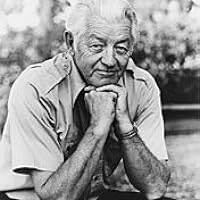
“As a practitioner of hindsight I know that Grandfather was trying to do, by personal initiative and with the financial resources of a small and struggling corporation, what only the immense power of the federal government ultimately proved able to do. That does not mean he was foolish or mistaken. He was premature. His clock was set on pioneer time. He met trains that had not yet arrived, he waited on platforms that hadn't yet been built, beside tracks that might never be laid.”
― Angle of Repose
― Angle of Repose

“In the hour of their disspiritedness, the haggard face and form that drooped and fainted were authentic enough They had worked hard and hoped hard, and their disappointment was as great as their expectations had been. But the money movtie demeans the. They were in no race for wealth - that was precisely what disgusted Grandfather with the mining business. They were makers and doers, they wanted to take a piece of wilderness and turn it into a home for a civilization. I suppose they were wrong - their whole civilization was wrong - but they were the antithesis of mean or greedy. Given the choice, any one of them would have chosen poverty, with the success of their project, over wealth and its failure.”
― Angle of Repose
― Angle of Repose
“The man who had the best stock of health and the most faith and pluck, was the most wealthy, for we were all capitalists in those days. Each one expected to help himself, and as a rule all went to work with energy to open up the country and make homes for themselves, and at the same time they were ever ready to help each other in case of need or misfortune, and I will presume to say that if the people now possessed more of the spirit that then actuated the “old moss backs,” as some reproachfully style the old settlers, we would hear less about a conflict between labor and capital, which in truth is largely a conflict between labor and laziness. We had no eight hour, nor even ten hour days then, and I never heard of any one striking, not even an Indian”
― Pioneer Days on Puget Sound
― Pioneer Days on Puget Sound
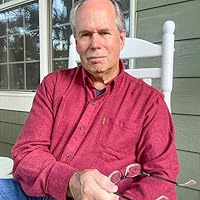
“I’m not interested in the man who stands looking at rivers. Rather, I’m interested in the man who’s so curious about what’s on the other side that he can’t help but build a bridge.”
―
―
“The girl who questioned me could find examples of women from small cities like Rutland who have risen from modest circumstances to fulfill their dreams. Or she could persuade herself that she’d be the pioneer, that she’d be the first Rutland kid to achieve some wonderful dream and that she’d be a role model for others.”
― How Champions Think: In Sports and in Life
― How Champions Think: In Sports and in Life
“Or she could persuade herself that she’d be the pioneer, that she’d be the first Rutland kid to achieve some wonderful dream and that she’d be a role model for others.”
―
―
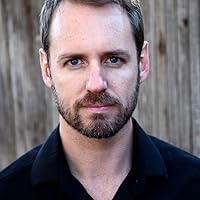
“His pioneering impulses allowed me to think about my own body in an entirely new way, and it is hard to express how much gratitude and respect I have for him.”
― What Doesn't Kill Us: How Freezing Water, Extreme Altitude, and Environmental Conditioning Will Renew Our Lost Evolutionary Strength
― What Doesn't Kill Us: How Freezing Water, Extreme Altitude, and Environmental Conditioning Will Renew Our Lost Evolutionary Strength

“I want to touch the places others can’t see Defining the future and setting ideas on fire When they question, I show them the golden key
Of a pioneer who walks on a revolutionary wire”
― A Relic From A Time of Heroes
Of a pioneer who walks on a revolutionary wire”
― A Relic From A Time of Heroes
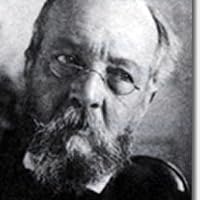
“The forest was dense, and filled with all manner of vines and rank undergrowth; the road was a vague opening, where obstructing trees had been felled, the stumps and rotten trunks remaining. Across actual quags a track of logs and saplings had been laid, but long ago, now rotten and in broken patches. As far as the eye could reach, muddy water, sent back by a south wind from the gulf, extended over the vast flat before us, to a depth of from two to six feet, as per immediate personal measurement. We spurred in.
One foot:
Two feet, with hard bottom:
Belly-deep, hard bottom:
Shoulder-deep, soft bottom:
Shoulder-deep, with a sucking mire:
The same, with a network of roots, in which a part of the legs are entangled, while the rest are plunging. The same, with a middle ground of loose poles; a rotten log, on which we rise dripping, to slip forward next moment, head under, haunches in air. It is evident we have reached one of the spots it would have been better to avoid.”
― A Journey through Texas: Or a Saddle-Trip on the Southwestern Frontier
One foot:
Two feet, with hard bottom:
Belly-deep, hard bottom:
Shoulder-deep, soft bottom:
Shoulder-deep, with a sucking mire:
The same, with a network of roots, in which a part of the legs are entangled, while the rest are plunging. The same, with a middle ground of loose poles; a rotten log, on which we rise dripping, to slip forward next moment, head under, haunches in air. It is evident we have reached one of the spots it would have been better to avoid.”
― A Journey through Texas: Or a Saddle-Trip on the Southwestern Frontier

“The horses, reluctant and excited from the first, become furious and wild. At the next shoal-personal nastiness being past consideration-we dismount, at knee-deep, to give them a moment's rest, shifting the mule's saddle to the trembling long-legged mare, and turning Mr. Brown loose, to follow as he could. After a breathing-spell we resume our splashed seats and the line of wade. Experience has taught us something, and we are more shrewd in choice of footing, the slopes around large trees being attractively high ground, until, by a stumble on a covered root, a knee is nearly crushed against a cypress trunk. Gullies now commence, cut by the rapid course of waters flowing off before north winds, in which it is good luck to escape instant drowning. Then quag again; the pony bogs; the mare, quivering and unmanageable, jumps sidelong among loose corduroy; and here are two riders standing waist-deep in mud and water between two frantic, plunging-horses, fortunately not beneath them. Nack soon extricates himself, and joins the mule, looking on terrified from behind. Fanny, delirious, believes all her legs broken and strewn about her, and falls, with a whining snort, upon her side. With incessant struggles she makes herself a mud bath, in which, with blood-shot eyes, she furiously rotates, striking, now and then, some stump, against which she rises only to fall upon the other side, or upon her back, until her powers are exhausted, and her head sinks beneath the surface. Mingled with our uppermost sympathy are thoughts of the soaked note-books, and other contents of the saddle-bags, and of the.hundred dollars that drown with her. What of dense soil there was beneath her is now stirred to porridge, and it is a dangerous exploit to approach. But, with joint hands, we length succeed in grappling her bridle, and then in hauling her nostrils above water. She revives only for a new tumult of dizzy pawing, before which we hastily retreat. At a second pause her lariat is secured, and the saddle cut adrift. For a half-hour the alternate resuscitation continues, until we are able to drag the head of the poor beast, half strangled by the rope, as well as the mud and water, toward firmer ground, where she recovers slowly her senses and her footing. Any further attempts at crossing the somewhat "wet" Neches bottoms are, of course, abandoned, and even the return to the ferry is a serious sort of joke. However, we congratulate ourselves that we are leaving, not entering the State.”
― A Journey through Texas: Or a Saddle-Trip on the Southwestern Frontier
― A Journey through Texas: Or a Saddle-Trip on the Southwestern Frontier
“[April 23, 1852. Friday.]...Arrived at Provo at noon...This town looks dirty. The houses look miserable, and many young men idling in the Streets. It seems there is not much energy here, and there seems to be little spirit of accommodation or friendship among people.”
― An Intimate Chronicle: The Journals of William Clayton
― An Intimate Chronicle: The Journals of William Clayton

“The cabin hadn't made him into a different person. It had revealed who he already was.
Ampie was right. Pioneer blood did flow through his veins." - The Traveling Cabin, pg. 68”
― The Traveling Cabin
Ampie was right. Pioneer blood did flow through his veins." - The Traveling Cabin, pg. 68”
― The Traveling Cabin
“If one has known poverty and suffering – not that genteel poverty of slender purse and shabby carpets – but the brutal poverty where the larder is oft-times empty, and where the frost lines the wall of one’s humble dwelling; then indeed it would seem that only love alone keeps the blood from congealing, then it is not so hard to understand the courage and endurance of the pioneer.”
―
―
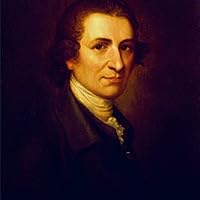
“The wants which necessarily accompany the cultivation of a wilderness produced among them a state of society which countries long harassed by the quarrels and intrigues of governments had neglected to cherish. In such a situation man becomes what he ought to be. He sees his species... as kindred.”
― Rights of Man
― Rights of Man
“Cuyahoga,” Susanna said softly to herself as she picked up her one small bag and prepared to follow Samson and Harriet to the shore. She liked the sound of it. It flowed like a place name from a piece of poetry.”
―
―
All Quotes
|
My Quotes
|
Add A Quote
Browse By Tag
- Love Quotes 98k
- Life Quotes 76.5k
- Inspirational Quotes 73.5k
- Humor Quotes 44k
- Philosophy Quotes 30k
- Inspirational Quotes Quotes 27k
- God Quotes 26.5k
- Truth Quotes 24k
- Wisdom Quotes 23.5k
- Romance Quotes 23.5k
- Poetry Quotes 22.5k
- Death Quotes 20k
- Life Lessons Quotes 20k
- Happiness Quotes 19k
- Quotes Quotes 18k
- Hope Quotes 18k
- Faith Quotes 18k
- Inspiration Quotes 17k
- Spirituality Quotes 15k
- Religion Quotes 15k
- Motivational Quotes 15k
- Writing Quotes 15k
- Relationships Quotes 14.5k
- Life Quotes Quotes 14.5k
- Love Quotes Quotes 14k
- Success Quotes 13.5k
- Time Quotes 12.5k
- Motivation Quotes 12.5k
- Science Quotes 11.5k
- Motivational Quotes Quotes 11.5k

